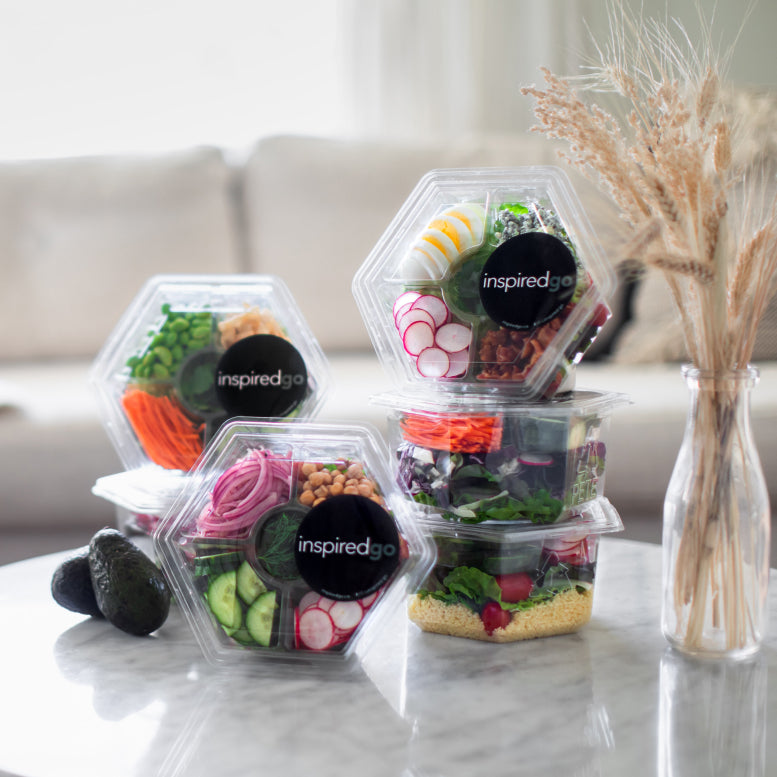How Do You Get Enough Protein On A Vegetarian Diet?
Table of Contents
1. Sustaining Protein Intake in a Vegetarian Diet
2. How Do You Get Enough Protein on a Vegetarian Diet?
3. What Are the Benefits of a Vegetarian Diet?
4. Why Is a Vegetarian Diet a Smart Choice?
1. Sustaining Protein Intake in a Vegetarian Diet
Embarking on a vegetarian lifestyle can appear challenging, especially when it comes to meeting protein requirements. However, a balanced and well-planned vegetarian diet can be rich in protein, providing all the essential amino acids your body needs. A myriad of plant-based foods such as beans, lentils, tofu, tempeh, seitan, and edamame are excellent protein sources. Nuts and seeds, including almond, flax, chia, and hemp seeds, are also rich in protein and beneficial fats. Whole grains like quinoa, amaranth, and spelt not only provide protein but are also packed with fiber and other vital nutrients. Including a variety of these foods in daily meals ensures a balanced protein intake. Ready-to-eat meals from Inspired Go, like the Classic Fattoush Salad or the Roasted Fall Bowl, offer a convenient way to enjoy protein-rich vegetarian dishes, combining taste and nutrition effortlessly.
Order fresh salads today →


2. How Do You Get Enough Protein on a Vegetarian Diet?
Ensuring sufficient protein intake on a vegetarian diet is achievable with a variety of protein-rich plant-based foods such as lentils, chickpeas, tofu, quinoa, tempeh, and dairy products. These ingredients provide essential amino acids needed for muscle maintenance, energy production, and overall health. Vegetarian meal delivery services address protein needs by designing meals rich in these plant-based protein sources, ensuring balanced macronutrient profiles. Pre-portioned servings prevent overconsumption while guaranteeing adequate protein intake. Nutritional transparency, including protein content per serving, helps customers track their daily requirements effectively. By removing the challenges of meal planning and preparation, vegetarian meal delivery services provide a reliable way to meet protein goals without hassle.
Choose your salads and schedule delivery →
3. What Are the Benefits of a Vegetarian Diet?
Vegetarian diets offer numerous health benefits, including lower cholesterol levels, reduced blood pressure, and improved digestion. They are also associated with a decreased risk of chronic diseases such as heart disease and diabetes. Vegetarian meal delivery services simplify access to these benefits by providing nutritionally balanced, ready-to-eat meals crafted by professional chefs and nutritionists. Ingredients such as leafy greens, lentils, and whole grains are strategically included to ensure optimal nutrition. Subscription options ensure regular deliveries, eliminating dietary inconsistencies caused by busy schedules. With transparent nutritional labeling and pre-portioned servings, vegetarian meal delivery services offer a practical way to enjoy the health benefits of a plant-based diet.
Get fresh salads and snacks delivered →
4. Why Is a Vegetarian Diet a Smart Choice?
Inspired Go emphasizes the health benefits of vegetarian diets by delivering balanced, ready-to-eat vegetarian meals crafted with precision. These meals include nutrient-dense ingredients such as lentils, chickpeas, tofu, and leafy greens, providing essential vitamins, minerals, and plant-based proteins. Each dish is pre-portioned to ensure calorie control and nutritional balance, while transparent labeling offers clarity on macronutrient composition. Subscription plans allow customers to receive regular deliveries, eliminating gaps in their meal routines. Inspired Go simplifies healthy eating by offering convenient access to balanced vegetarian meals, making it easier for customers to enjoy the benefits of a plant-based diet without the need for meal prep or planning.
Try our fresh, ready-to-eat salads →
Frequently Asked Questions
A vegetarian diet focuses on plant-based foods, eliminating meat, poultry, and fish while including fruits, vegetables, grains, legumes, nuts, and seeds. Depending on the type of vegetarianism, it may also include animal-derived products like dairy and eggs. Popular variations include lacto-ovo vegetarian (includes eggs and dairy) and lacto-vegetarian (excludes eggs but includes dairy). The diet is often chosen for ethical, environmental, or health reasons and supports a nutrient-dense lifestyle when properly balanced.
Vegetarian foods include a wide variety of plant-based options like fruits, vegetables, whole grains, legumes, nuts, and seeds. Dairy products such as milk, cheese, and yogurt, as well as eggs, are included in lacto-ovo vegetarian diets. Vegetarian-friendly dishes range from hearty grain bowls and vegetable curries to pasta, soups, and salads. Many processed foods, such as chips or baked goods, can also be vegetarian, though reading labels is key to avoiding hidden animal-based ingredients.
Yes, many vegetarians eat eggs, depending on their dietary preference. Those following a lacto-ovo vegetarian diet include both eggs and dairy products, while lacto-vegetarians exclude eggs but consume dairy. Eggs are an excellent source of protein, vitamins, and minerals, making them a valuable addition to a vegetarian diet. However, vegans avoid eggs entirely, as their diet excludes all animal-derived products, including dairy and honey.
Vegetarians can meet their protein needs by incorporating a variety of plant-based and animal-free sources. Protein-rich options include legumes (lentils, chickpeas, black beans), tofu, tempeh, nuts, seeds, and whole grains like quinoa. For those who consume dairy and eggs, options like Greek yogurt, cheese, and eggs provide additional high-quality protein. Combining different plant proteins, such as rice and beans, ensures a complete amino acid profile, supporting muscle repair and overall health.
Yes, eggs and cheese are allowed on a lacto-ovo vegetarian diet, which includes both dairy products and eggs alongside plant-based foods. These ingredients are excellent sources of protein, calcium, and other essential nutrients. Lacto-vegetarians exclude eggs but include cheese and other dairy products. Vegans, however, do not consume eggs, cheese, or any other animal-derived products, focusing solely on plant-based foods and alternatives.

